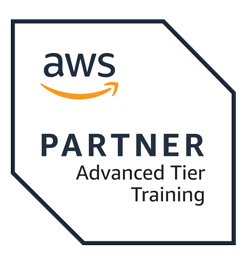Amazon EKS makes it easy for you to run Kubernetes on AWS without needing to install, operate, and maintain your own Kubernetes control plane. In this three-day course, you will learn container management and orchestration for Kubernetes using Amazon EKS. You will build an Amazon EKS cluster, configure the environment, deploy the cluster, and add applications to your cluster. You will also manage container images using Amazon Elastic Container Registry (ECR) and learn how to automate application deployment. In addition, you will deploy applications using CI/CD tools. You will review how to monitor and scale your environment by using metrics, logging, tracing, and horizontal/vertical scaling. You will also learn how to design and manage a large container environment for efficiency, cost, and resiliency. Lastly, you will configure AWS networking services to support the cluster and learn how to secure your Amazon EKS environment.
Apart from public, instructor-led classes, we also offer private in-house trainings for organizations based on their needs. Call us at +852 2116 3328 or email us at [email protected] for more details.

In this course, you will learn to:
We recommend that attendees of this course have:
This course is intended for people who provide container orchestration management in the AWS Cloud including:
This course will be delivered through a blend of:
This course will cover the following concepts:
Day 1
Module 0: Course Introduction
Module 1: Kubernetes Fundamentals
Module 2: Amazon EKS Fundamentals
Module 3: Building an Amazon EKS Cluster
Module 4: Deploying Applications to Your Amazon EKS Cluster
Day 2
Module 5: Configuring Observability in Amazon EKS
Module 6: Balancing Efficiency, Resilience, and Cost Optimization in Amazon EKS
Module 7: Managing Networking in Amazon EKS
Day 3
Module 8: Managing Authentication and Authorization in Amazon EKS
Module 9: Implementing Secure Workflows
Module 10: Managing Upgrades in Amazon EKS
This course is not associated with any certification.